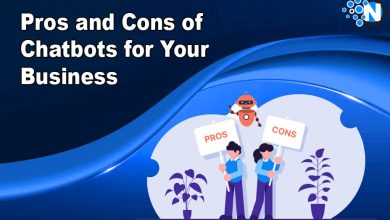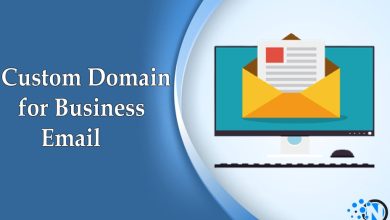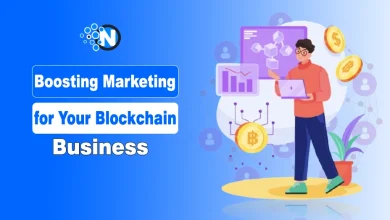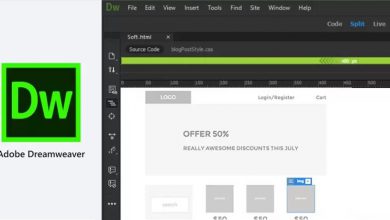Technology and the internet have entirely changed the marketing dynamics. Nowadays, the digital marketplace connecting with customers is more important than ever. Salesforce Marketing Cloud is a product disrupting the online markets and coping with digital marketing challenges.
It is a mixture of different components, including Email Studio, Mobile Studio, Social Studio, Advertising Studio, and Web Studio. Implementation of Sales Force Marketing offers multiple benefits, including a better understanding of customers, personalized with AI, practical analysis, and data security.
An Overview of Salesforce Marketing Cloud
Start creating Verdict in seconds, and convert more of your visitors into leads.
Salesforce Marketing Cloud is an inclusive digital marketing space developed to manage marketing campaigns in B2B and B2C business categories. It is a segment of the Salesforce Products Suite, which is widely acknowledged for customer relationship management (CRM) solutions and computing processes.
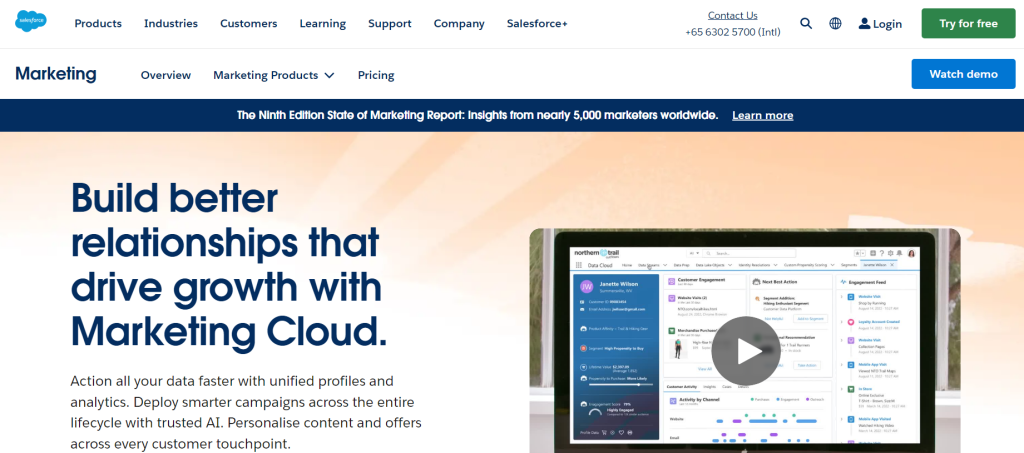
It stands out as a top-notch solution for personalizing the customer experience across multiple channels using statistical analysis, mailing, promotional activities, and other tools. According to Salesforce, implementing Marketing Cloud increases ROI by up to 28% on average.
Here is what kind of business can use this service.
B2C Businesses:
B2C businesses include restaurants, fashion studios, clothing brands, and entertainment industries. Salesforce Marketing Cloud helps these industries cope with the low customer and repeat business engagement. It enables businesses to build strong relations with existing and prospective customers and boost sales.
B2B Businesses:
These are businesses engaged in the business-to-business model. They include IT service providers, manufacturing companies, and other companies directly engaged in B2B trading. Salesforce Marketing Cloud helps them convert sales leads into long-term business relationships and manage their relationships with existing clients.
E-commerce Platforms:
E-commerce-based businesses like online retailers, digital markets, and other subscription-based services use Salesforce Marketing Cloud to cope with low conversion rates and customer retention. They are widely using the tool to manage customer relations and increase sales.
Non-profit Organizations:
These organizations include charitable foundations, educationalists, and other social welfare organizations. Salesforce Marketing Cloud enables them to solve the challenges in donor retention, effective fundraising, and community interactions.
Main Components of Salesforce Marketing Cloud:
Start creating Verdict in seconds, and convert more of your visitors into leads.
Email Studio:
Email Studio is one of the most potent email solutions of Salesforce Marketing Cloud. It empowers businesses and organizations to reach customers through data-driven and email campaigns. It offers the following features.
- Segmentation and targeting: Developing targeted customer segments based on customer behavior, demography, and buying history.
- Dynamic Content: It enables personalizing the content of emails based on customers’ interactions, interests, and profiles.
- Automated Campaigns: This refers to setting up the emails according to customers’ actions and time intervals.
- A/ B Testing: It includes testing of different email drafts to select among effective content, subject, and email timings.
- Comprehensive Analytics: It refers to tracking of email campaign performance based on detailed analysis and reports.
Mobile Studio:
Mobile Studio includes gear to engage with customers directly on mobile phones. It is the main feature of mobile marketing inside Salesforce Marketing Cloud. It offers the following Features.
- SMS and MMS Messaging: To send customers text messages and multimedia messages across multiple social media platforms globally.
- Push Notifications: It enables businesses to deliver notifications on mobile devices to increase customer engagement.
- Mobile Journey Integration: It consists of integrating mobile messaging into customer maps for a flawless customer experience.
- Geo-location Targeting: Using location-based customer targeting and segmentation for effective and result-driven customer interactions.
Social Studio:
It is a part of Salesforce Marketing Cloud and enables businesses to inclusive social media engagement across all social media platforms. It is one of the most influential and result-driven tools. Nowadays, companies are widely implementing social studios. It has the following features:
- Social Media Publishing: It involves scheduling and publishing content on multimedia platforms.
- Social Listening refers to monitoring industry trends, fashion trends, customer feedback, and marketing standings on all social media platforms.
- Engagement Tools: Customer engagement is directly from the social studio on social media platforms.
- Collaborative workspace: It enables the team members to collaborate in the workplace to make social media content.
Advertising Studio:
As a part of Salesforce Marketing Cloud, Advertising Studio focuses on targeted advertising campaigns to increase customer engagement. It is one of the most essential tools; newly established businesses entirely depend on advertising studios to create brand awareness. Key features are the following:
- Customer Data Integration: It consists of salesforce data to target customers across multiple advertisement platforms.
- Cross-channel Advertisement: It involves coordinated advertisement across all channels, i.e., social, mobile, email, and website.
- ROI Tracking: It calculates the return on investment of advertisement campaigns with deep analysis.
- Audience with the same interest: It identifies and creates an audience with similar interests for better targeting.
Web Studio:
Web Studio is a part of Salesforce Marketing Cloud. It includes web marketing efforts with personalized and vibrant content creation for customers to publish on multiple social media platforms. It enhances customer engagement and increases brand awareness. Salient features are stated below:
- Personalized Web Content: It helps create tailored content based on customer behaviors.
- Content Management: It enables the marketer to easily create and manage web content without having technical expertise.
- Cross Studio Integration:
- It enables the integration of web experiences with email, social media campaigns, and mobile advertisements.
- Real-time Interaction Management: It enables the team to engage customers in real-time interactions.
Benefits of Salesforce Marketing Cloud
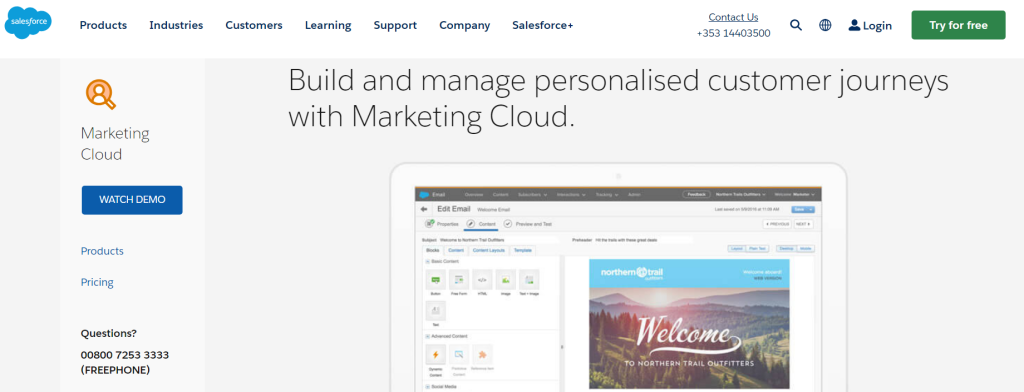
Better Understanding of Customers:
Salesforce Marketing Cloud enables businesses to collect and analyze customer data inclusively. A deep understanding of customers’ behavior leads to effective and progressive marketing strategies.
Personalize with AI:
Integrating AI with Salesforce Marketing Cloud enables IT experts to establish personalized customer experiences. It allows you to predict customer behavior and preferences.
Effective and Impactful Analysis:
Its robust analytical expertise equips businesses with deep knowledge of the market, customers, and competitors to forecast the future and make impactful decisions.
Targeted Customer Journey:
The platform enables the creation of targeted customer Journey maps to ensure that each interaction is relevant and impactful.
Security:
Salesforce Marketing Cloud emphasizes data security to protect customer’s information, which is crucial to gaining their trust. Further, it is necessary to comply with international regulations regarding data protection.
Pricing of Salesforce Marketing Cloud:
Start creating Verdict in seconds, and convert more of your visitors into leads.
| Product/ Package Name | Pricing | Features |
|---|---|---|
| Marketing Cloud Engagement | $1,250 per month | 10,000 contacts billed annually Email MarketingContent CreationDeep Analytics |
| Marketing Cloud Account Engagement | $1,250 per month | 10,000 contacts billed annually Lead nurturing & scoringEngagement HistoryCampaign Reporting & Insights |
| Data Cloud for Marketing | $108,000 per Year | Data integration and harmonyIdentity activation and resolutionDeep insights and forecasting |
| Marketing Cloud Personalization | $108,000 per Year | Offers web and email personalizationSegmentation, decision-making, A/B/N Testing, and ReportingContent and product recommendations |
| Marketing Cloud Intelligence | $3,000 per month | 10 Users3 million data rows |
| Loyalty Management | $20,000 per month | Member Administration, Reward Management, Static Benefit Management1 License for Loyalty Management Base AppSingle Program Setup |
| Referral Marketing | $12,500 per month | 100,000 brand advocatesUnlimited Referral Promotions, Referral a friend templates, Vouchers, Referral sharing widget, Referral Tracking.Data processing engine, batch management, and decision tables |
The Final Verdicts
Start creating Verdict in seconds, and convert more of your visitors into leads.
This article emphasizes Salesforce Marketing Cloud with a detailed discussion of different components, including email studio, mobile studio, social studio, advertising studio, and web studio. These components play a vital role in building effective Salesforce Marketing. The primary purpose of the platform
Salesforce Marketing is to automate and simplify marketing processes and procedures. It enables personalized customer interactions and develops a composite view of customers across multiple channels. The model’s flexibility fits with large and small-scale businesses across all sectors, including B3B, B2C, and non-profit organizations.
FAQs
Start creating Verdict in seconds, and convert more of your visitors into leads.
Q1: What is best about Salesforce Marketing Cloud?
It enables businesses to build, automate, and personalize marketing campaigns, integrating emails, social media, messaging, and web channels.
Q2: How many customers use Salesforce Marketing?
There are 150,000 product users worldwide.
Q3: Why use Salesforce Force Marketing Cloud?
Organizations use Salesforce Marketing Cloud to integrate marketing channels and build strong customer relations.
Q4: How many emails are sent at once with Marketing Cloud?
Two million emails can be sent daily, and the maximum email size is 20 MB.
Q5: What is marketing cloud engagement?
Marketing cloud engagement is B2C automation that integrates multiple modules to develop a collective interface.

